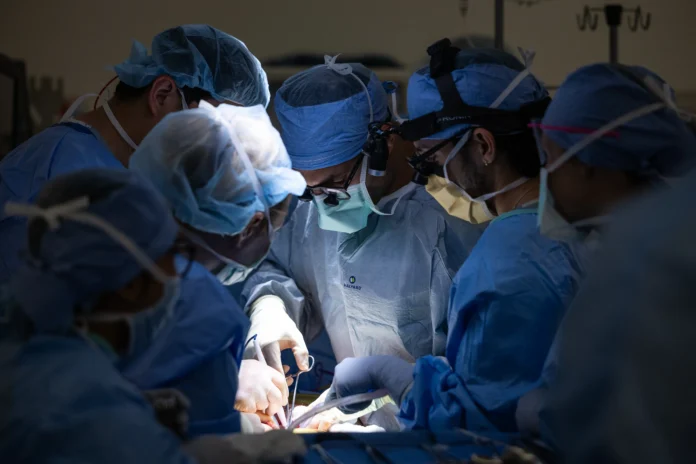In a groundbreaking medical achievement, surgeons at Ronald Reagan UCLA Medical Center in Los Angeles have successfully performed the world’s first full human bladder transplant, marking a major milestone in the treatment of severe bladder conditions.
The recipient, 41-year-old Oscar Larrainzar, a father of four, underwent the pioneering procedure on May 4. Years earlier, Larrainzar had a significant portion of his bladder removed due to cancer and later lost both kidneys, requiring dialysis for seven years.
In an eight-hour surgery, doctors transplanted both a kidney and a bladder from a deceased organ donor. “The surgeons first transplanted the kidney, followed by the bladder, then connected the kidney to the new bladder using a novel surgical technique,” UCLA stated on Sunday.
Dr. Nima Nassiri, one of the lead surgeons, said the results were almost immediate. “The kidney produced a large volume of urine right away, and the patient’s kidney function improved instantly. There was no need for dialysis post-surgery, and the bladder functioned as expected.”
The surgery, four years in the making, overcame the long-standing challenge of the pelvis’s complex vascular anatomy, which had previously made full bladder transplants unfeasible. Dr. Inderbir Gill, who co-led the procedure with Nassiri, hailed it as a major advancement.
Until now, bladder reconstruction options were limited to artificial creations using sections of the intestine or external stoma bags, both of which carried notable risks. The successful transplant offers new hope for patients with end-stage bladder disease or those who have suffered bladder loss due to cancer or trauma.
The medical community is watching closely, with hopes that this historic success could pave the way for more widespread use of full bladder transplants in the future.
Written By Rodney Mbua



















